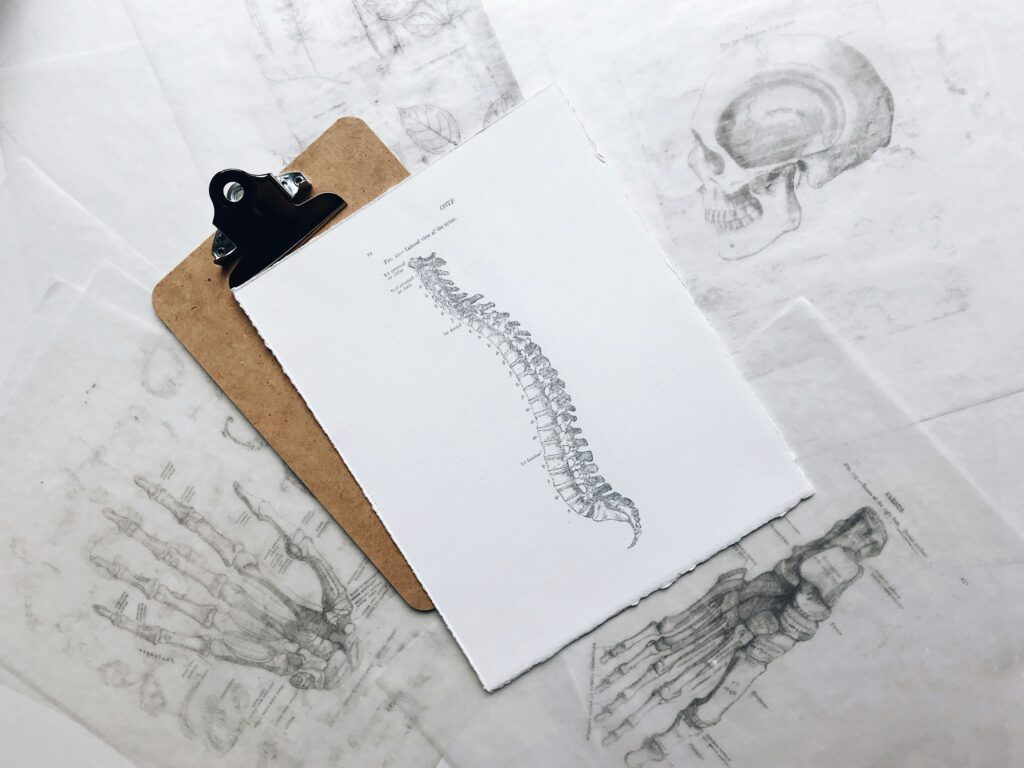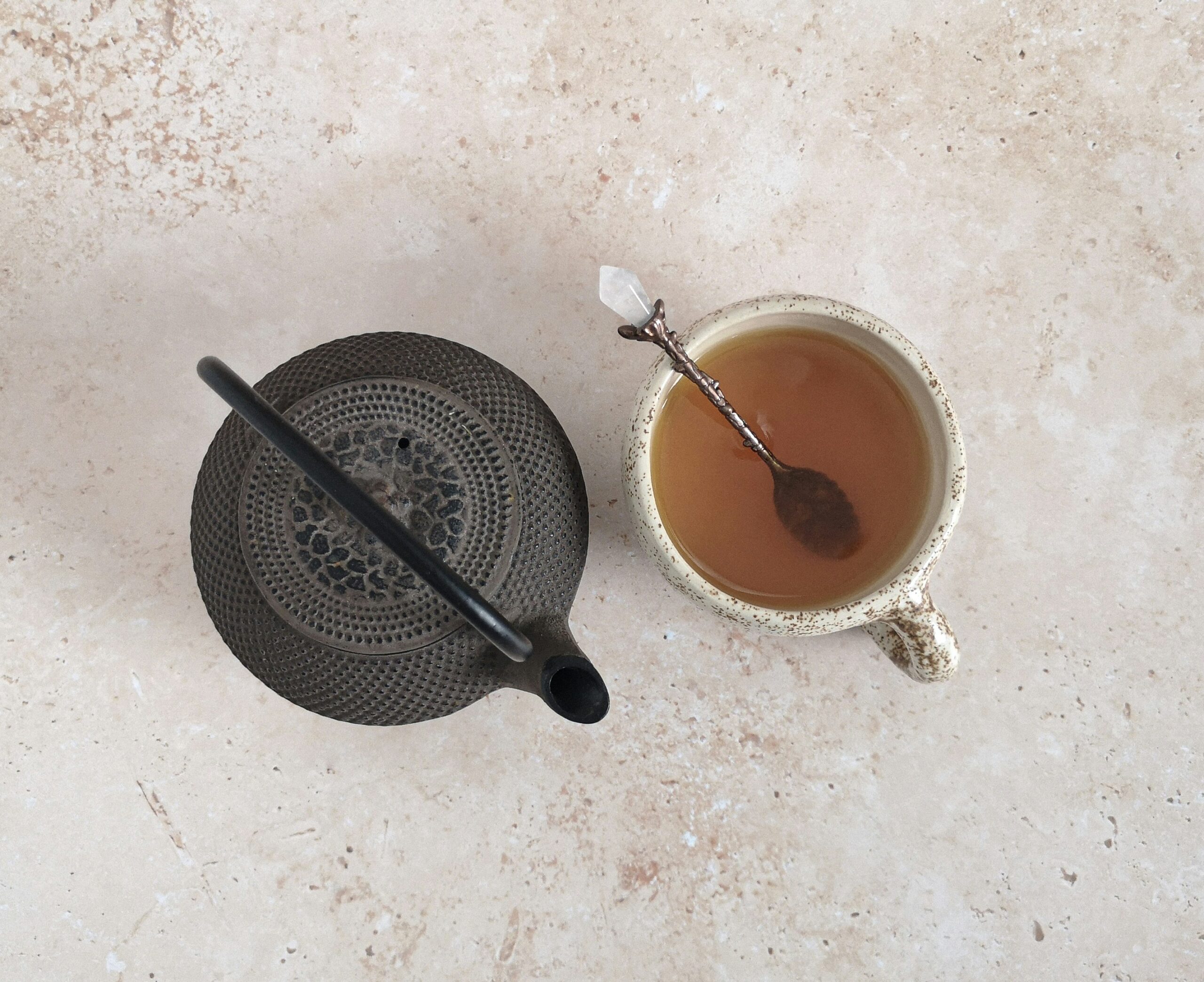

Herbs for nerve regeneration can be an essential element in managing and promoting peripheral nerve health. Many people experience conditions like peripheral neuropathy or nerve injuries, which can significantly impact quality of life. Various natural remedies, including certain herbs, have shown promise in supporting nerve healing and reducing symptoms.
Herbal solutions are becoming more popular due to their potential to enhance nerve growth and regeneration. Some herbs have been found to stimulate nerve regeneration and provide neuroprotective effects. For example, using herbal extracts after nerve microsurgery can positively impact nerve healing. Traditional medicine has long utilised these herbs for their recovery benefits, and recent studies are beginning to support their effectiveness.
Incorporating herbs into your daily routine may aid in nerve repair and reduce neuropathic pain caused by conditions like chemotherapy-induced peripheral neuropathy. While clinical evidence is still growing, herbs such as those found in herbal preparations like GCSB-5 and those used in Chinese medicine are showing potential in scientific studies.
Key Takeaways
- Some herbs stimulate nerve regeneration and offer neuroprotective benefits.
- Herbal preparations have shown promise in treating peripheral nerve injuries.
- Incorporating specific herbs can help support nerve health and reduce symptoms.
OK, SO WHAT ARE WE TALKING ABOUT TODAY?
- Understanding Nerve Damage and Regeneration
- Herbs and Their Neuroprotective Effects
- Common Nutrients Involved in Nerve Repair
- Inflammatory Processes and Nerve Healing
- Nerve Regeneration and Peripheral Neuropathy
- Herbs Linked to Improved Nerve Function
- Natural Supplements for Nerve Damage
- Clinical Evidence Supporting Herbal Medicine for Nerves
- Lifestyle and Dietary Considerations
Understanding Nerve Damage and Regeneration
Nerve damage affects many people and can result from injury, disease, or even treatments like chemotherapy. Nerve regeneration is a key area of research focused on repairing this damage so you can regain normal function.

The Biology of Nerves
Nerves are vital for transmitting signals throughout your body. They contain neurons, which are specialised cells that send and receive electrical impulses. In the peripheral nervous system, Schwann cells play an important role by producing myelin, which insulates neurons and speeds up signal transmission. The central nervous system relies on different types of cells for support and protection.
Neurons are highly specialised and cannot easily repair themselves. This makes understanding their structure important for developing new treatments. Since neurons rely on other cells for support, any damage can have widespread effects.
Mechanisms of Nerve Injury and Repair
Nerve injuries can happen for many reasons including trauma, disease, and toxicity from treatments like chemotherapy. When nerve cells are damaged, it disrupts signal transmission, which can lead to neuropathy and loss of motor or sensory functions.
In the peripheral nervous system, Schwann cells respond to injury by clearing debris and releasing growth factors that encourage regeneration. Successful nerve repair often depends on timely and effective interventions, as prolonged damage can hinder the regenerative process.
Current research is looking into how different therapies, including complementary and alternative medicines, can boost these natural repair processes. For instance, some herbs might help improve blood flow and reduce inflammation, aiding recovery.
Role of Nutrition in Nerve Health
Proper nutrition is critical for maintaining and promoting nerve health. Vitamins such as B-complex, particularly B6 and B12, are essential for nerve function and regeneration. Deficiencies in these vitamins can lead to nerve damage and complications.
Certain herbs and foods may promote nerve health by providing the nutrients necessary for repair and function. For example, foods rich in antioxidants can reduce oxidative stress on nerve cells. Omega-3 fatty acids, found in fish and flaxseeds, are also known to support nerve regeneration and overall nerve health.
Incorporating these nutrients into your diet can aid in the natural repair processes, making it an important aspect of treating and preventing nerve injuries.
RELATED: Home Remedies For Pinched Nerve In Neck: Effective Relief Solutions
Herbs and Their Neuroprotective Effects
Herbs offer various neuroprotective benefits that can aid in nerve regeneration. Key properties like anti-inflammatory effects and specific phytochemicals make these herbs effective in supporting neurological health.

Herbal Properties Enhancing Nerve Function
Several herbs are known to promote nerve function and regeneration. Some common herbs include:
- Ginseng: Known for its anti-inflammatory and antioxidant properties, it helps reduce neuronal damage.
- Ginkgo Biloba: Improves blood flow to the brain and has antioxidant effects that protect nerve cells.
- Turmeric: Contains curcumin, which reduces inflammation and oxidative stress, aiding in nerve repair.
These herbs support nerve health by reducing inflammation and protecting nerve cells from damage. Their ability to enhance blood flow and reduce oxidative stress makes them beneficial for neurological health.
Phytochemicals and Neuroprotection
Phytochemicals in herbs play a crucial role in neuroprotection. Key compounds include:
- Flavonoids: Found in Ginkgo Biloba, flavonoids have antioxidant properties that protect neurons.
- Curcumin: Turmeric’s active compound, curcumin, has been shown to reduce neuronal inflammation and prevent damage.
- Baicalein: Present in certain Chinese herbs, baicalein has anti-inflammatory effects and can protect against neuronal damage caused by toxins.
These phytochemicals contribute to nerve health by modulating inflammation and protecting against oxidative stress. They also support nerve regeneration by maintaining a healthy environment for nerve cells to repair and grow.
RELATED: How To Start Your Herbal Medicine Cabinet
RELATED: The So-Called Healing Power of Herbal Tea – An Introduction
Common Nutrients Involved in Nerve Repair
Certain vitamins and minerals are crucial for nerve repair and overall nervous system health. These include B vitamins, magnesium, calcium, and others.
The Role of B Vitamins
B vitamins play a major role in nerve health. Vitamin B1 (Thiamine) aids in converting food into energy. Thiamine is found in whole grains and meats. Lack of Thiamine can lead to nerve damage.
Vitamin B6 (Pyridoxine) helps in neurotransmitter creation. This process is vital for brain function and development. Foods like chicken, fish, and potatoes are rich in B6.
Vitamin B12 is crucial for maintaining the myelin sheath that surrounds nerves. You can find B12 in animal products such as eggs, milk, and fish. Deficiency in B12 can lead to nerve degeneration and neuropathy.
Minerals Essential for Nervous System Health
Certain minerals also help in nerve repair. Magnesium is important for maintaining normal nerve function. Foods high in magnesium include nuts, seeds, and leafy green vegetables.
Calcium is another critical mineral. It helps in neurotransmitter release and muscle function. Dairy products and green leafy vegetables are rich sources of calcium.
Iron supports nerve cell development and is found in lean meats, beans, and fortified cereals. Low iron levels can impair nerve function.
Folate also contributes to nerve health. It aids in synthesising DNA and RNA, impacting nerve cell growth. Folate can be found in leafy greens, legumes, and citrus fruits.
Inflammatory Processes and Nerve Healing
Inflammation plays a crucial role in nerve repair and regeneration. Managing this inflammation is key to successful nerve healing. Certain herbs can aid in controlling the inflammatory response, thus promoting nerve regeneration.
Controlling Inflammation for Nerve Regeneration
Inflammation is a natural response of the immune system to injury, but excessive inflammation can hinder nerve healing. Controlling this inflammatory process helps in creating an optimal environment for nerve regeneration.
Chronic inflammation can cause further damage to nerve tissues. Addressing inflammation early can reduce the risk of chronic issues. Strategies to control inflammation include using anti-inflammatory medications, adopting a healthy diet rich in anti-inflammatory foods, and incorporating herbs known for their anti-inflammatory properties.
A balanced immune response is also essential. When the immune system is regulated properly, it helps in clearing damaged cells and promotes the growth of new nerve cells. Overactive immune responses can lead to prolonged inflammation, which can impede healing.
Herbs That Fight Inflammation
Several herbs can significantly reduce inflammation, aiding the process of nerve healing. GCSB-5, an herbal preparation, has shown promise in reducing inflammation and promoting nerve regeneration. Another herb, Astragalus membranaceus, enhances inflammation control and aids in nerve healing.
Rosmarinic acid, found in many culinary herbs, helps in ameliorating neuron regeneration, particularly in conditions with local inflammation. This acid reduces the inflammatory response, creating a conducive environment for nerve growth.
The anti-inflammatory properties of many medicinal herbs are due to their antioxidant content. These antioxidants reduce oxidative stress, which contributes to inflammation and nerve damage. Using these herbs as part of a daily regimen can support the body’s natural healing processes.
Nerve Regeneration and Peripheral Neuropathy
Peripheral neuropathy results from nerve damage and can cause pain, weakness, and numbness. Understanding how nerves can regenerate and how herbs can help is important for managing these conditions.
Pathophysiology of Peripheral Neuropathy
Peripheral neuropathy occurs when nerves outside the brain and spinal cord are damaged. This damage can result from various factors, like diabetes, chemotherapy, infections, or injury. When these nerves are damaged, they cannot transmit signals properly, leading to symptoms like pain, tingling, and muscle weakness.
The nerve fibres have a limited ability to repair themselves. After an injury, the damaged parts of the nerve may need to regrow and reconnect with the muscles or skin they supply. This process, nerve regeneration, can take weeks to months and is often incomplete, leading to chronic symptoms. The damage can also trigger inflammation and apoptosis, further hindering the repair process and exacerbating symptoms.
Herbal Approaches to Neuropathy
Several herbs show potential in promoting nerve regeneration and alleviating symptoms of peripheral neuropathy. For example, studies suggest that Chinese medicine can help repair and regenerate nerve cells.
Herbs like Shiitake mushrooms, Ginseng, and Curcumin contain compounds that may enhance nerve growth and reduce inflammation. Herbal extracts used in microsurgery of the sciatic nerve have demonstrated potential benefits in aiding nerve recovery.
These herbal approaches can play a significant role in reducing nerve pain and improving function, making them valuable additions to conventional treatments. Integrating these natural remedies may help support the body’s repair mechanisms, potentially leading to better outcomes for those suffering from neuropathy.
Herbs Linked to Improved Nerve Function
Certain herbs are known to support nerve function and may help in nerve regeneration. Sage and turmeric are among the top herbs being studied for their neuroprotective properties and potential to aid in nerve health.
Sage: A Nervine Herb
Sage is well-known for its medicinal properties. This herb is classified as a nervine, meaning it can calm and support the nervous system. Some studies suggest that sage may help improve nerve function by reducing inflammation and oxidative stress.
Consuming sage, whether as a tea or supplement, might enhance cognitive function and protect against neurodegenerative diseases. The active compounds in sage, such as rosmarinic acid and carnosic acid, have shown potential in protecting neurons from damage. Regular use of sage could thus support overall brain health and improve nerve function.
Turmeric and Curcumin for Nerve Health
Turmeric contains curcumin, a compound with strong anti-inflammatory and antioxidant properties. Research has highlighted curcumin’s role in promoting nerve regeneration and protecting against oxidative stress. Turmeric can be consumed as a spice in food, or curcumin supplements are available for more concentrated doses.
Curcumin has been observed to enhance the production of brain-derived neurotrophic factor (BDNF), which supports the survival and growth of neurons. This makes turmeric particularly beneficial for those looking to support their nervous system. Some studies have also suggested that curcumin could help reduce neuropathic pain, making it an effective option for nerve health.
Natural Supplements for Nerve Damage
When dealing with nerve damage, certain natural supplements can play a significant role in promoting nerve repair and recovery. Below are detailed insights into how Alpha-Lipoic Acid and Acetyl-L-Carnitine can assist in nerve healing.


Alpha-Lipoic Acid and Nerve Repair
Alpha-Lipoic Acid (ALA) is a powerful antioxidant that has shown promise in nerve repair. It helps in reducing oxidative stress, which can damage nerve cells. By scavenging free radicals, ALA can protect nerves from further harm.
Studies indicate that ALA can improve blood flow to the nerves and enhance the conduction of nerve signals. This process can result in reduced pain and improved function in affected nerves. ALA is often recommended in doses of 600-1200 mg per day for optimal benefits.
Including ALA in your diet through supplements or naturally from foods like spinach, broccoli, and potatoes may aid in nerve regeneration. It’s important to consult with a healthcare provider before starting any new supplement regimen.
Acetyl-L-Carnitine and Peripheral Neuropathy
Acetyl-L-Carnitine (ALC) is another supplement that can be beneficial for peripheral neuropathy. It works by facilitating energy production in nerve cells and enhancing the repair of damaged nerves. ALC has both antioxidant and neuroprotective properties.
Research shows that ALC can reduce pain and improve sensory function in individuals with nerve damage. Common dosages range from 500-2000 mg per day, depending on the severity of the neuropathy.
Taking ALC supplements may help in the management of symptoms associated with peripheral neuropathy. Discussing the appropriate dose with a healthcare professional is essential to ensure safety and efficacy.
Both Alpha-Lipoic Acid and Acetyl-L-Carnitine provide different yet complementary benefits for nerve repair, helping to restore function and reduce discomfort in damaged nerves.
Clinical Evidence Supporting Herbal Medicine for Nerves
There is growing interest in using herbal medicine to support nerve health and regeneration. Clinical studies and research involving animal models provide key insights into the potential benefits of herbal remedies in treating nerve injuries and neuropathic pain.
Research on Herbal Remedies for Nerve Health
Clinical studies have investigated the potential of various herbs in promoting nerve health. For example, Centella asiatica has shown promise in accelerating nerve regeneration. This herb, often used in Ayurvedic medicine, has multiple active compounds that increase neurite elongation, which is crucial for nerve repair and growth.
Another key study highlighted that herbal medicines and natural products could aid in peripheral nerve regeneration. Herbs like Ganoderma lucidum and Erythrina variegata have been researched for their neuroprotective properties. These studies suggest that these herbs can reduce inflammation and support the repair of damaged nerve tissues.
Studies Involving Animal Models
Research involving animal models, particularly the rat sciatic nerve injury model, has provided significant evidence regarding the efficacy of herbal remedies. For instance, studies have demonstrated that oral administration of Centella asiatica can accelerate sciatic nerve regeneration in rats, suggesting its potential for similar benefits in humans.
Other animal model studies have also explored the effects of herbs in relieving neuropathic pain. For example, preclinical trials involving decoctions of certain herbs have shown a reduction in pain and sensory deficits. These trials indicate that these herbal preparations may support nerve recovery and functional improvements following injuries.
This combination of clinical studies and animal models indicates that certain herbs could play a role in supporting nerve health and regeneration.
Potential Side Effects and Interactions
When considering herbs for nerve regeneration, it’s crucial to be aware of the potential side effects and interactions that may occur. Some herbs can interact with medications, and others may cause adverse effects.
Herb-Drug Interactions
Herbs can interact with various drugs, affecting their efficacy or causing unwanted side effects. For example, St. John’s Wort is known to interfere with the metabolism of several medications, reducing their effectiveness. It can impact drugs used for treating depression, HIV/AIDS, and certain cancers.
Another example is Ginkgo biloba. While it is often used to help with cognitive function, it may increase the risk of bleeding when taken with blood thinners such as warfarin or aspirin. It’s essential to consult with your healthcare provider before combining any herbal remedies with prescription medications.
Adverse Effects of Herbal Consumption
While many herbs offer therapeutic benefits, they can also cause adverse effects. For instance, high doses of Valerian root, commonly used for sleep disorders, may lead to headaches, dizziness, and gastrointestinal upset.
Echinacea, often used to boost the immune system, can cause allergic reactions, especially in individuals allergic to ragweed. Long-term use of some herbs, like Kava, used for anxiety, has been linked to severe liver damage.
Awareness of these potential side effects is crucial for anyone considering herbal treatments for nerve regeneration. Always follow recommended dosages and seek professional advice to minimise risks associated with herbal consumption.
Lifestyle and Dietary Considerations
Lifestyle changes and a proper diet can help in nerve regeneration and managing related conditions. Key areas include managing diabetes and adopting dietary patterns that promote nerve health.
Managing Diabetes and Its Impact on Nerves
Diabetes significantly affects nerve health. High blood sugar damages nerves and can lead to diabetic neuropathy. Managing your blood sugar levels is crucial. Regular exercise, a balanced diet, and monitoring your blood glucose help prevent nerve damage.
Try to keep your blood sugar within the recommended range. Avoid high sugar foods, and choose whole grains and vegetables. Regular physical activity, such as walking or swimming, improves circulation and nerve health.
Managing stress also plays a role. Practice relaxation techniques like yoga or meditation. Consult your healthcare provider for regular check-ups and personalised advice on managing diabetes.
Dietary Patterns Promoting Nerve Health
A healthy diet supports nerve regeneration. Including antioxidants, vitamins, and minerals in your meals is essential. Foods rich in vitamins B, D, and E, such as leafy greens, nuts, and fish, promote nerve health.
Antioxidants: Help reduce oxidative stress. Include berries, citrus fruits, and green tea in your diet.
Omega-3 Fatty Acids: Found in fish oils and flaxseeds, support nerve repair and reduce inflammation.
Herbs: Certain herbs, like Lycium barbarum, have been traditionally used for nerve health. Others, like turmeric, with its anti-inflammatory properties, aid in nerve repair.
Drink plenty of water and avoid excessive alcohol consumption. Eating a balanced diet helps maintain a healthy weight, reducing pressure on your nerves. Regularly consult a nutritionist to tailor your diet to your specific needs.
Frequently Discussed Topics in Nerve Regeneration
Understanding how factors like lifestyle choices and genetics affect nerve health is essential. Key areas include the impact of alcohol and smoking, and hereditary conditions that can lead to nerve damage.
Effects of Alcohol and Smoking on Nerve Health
Alcohol consumption can severely impact nerve health. Chronic drinking can lead to peripheral neuropathy, where nerves in the hands and feet are damaged, causing pain, tingling, or numbness. Alcohol can also reduce the body’s ability to absorb essential nutrients, impairing nerve function.
Smoking is another significant risk factor. It reduces blood flow and oxygen to the nerves, hindering their ability to repair and regenerate. This can worsen conditions like diabetic neuropathy. Smoking also increases the risk of developing infections, which can further damage nerves. To maintain nerve health, it’s crucial to limit or avoid alcohol and smoking.
Hereditary Conditions and Nerve Damage
Many hereditary conditions can cause nerve damage. For instance, Charcot-Marie-Tooth disease is a common hereditary neuropathy affecting the peripheral nerves. It leads to muscle weakness and abnormal nerve responses due to genetic mutations.
Another condition, Hereditary Neuropathy with Liability to Pressure Palsies (HNPP), makes nerves more susceptible to injury from pressure. People with HNPP experience episodes of numbness, tingling, and muscle weakness. Managing these conditions often involves physical therapy, medications, and lifestyle adjustments to protect nerve health.



Comments +